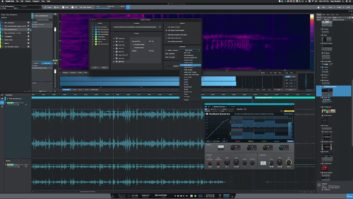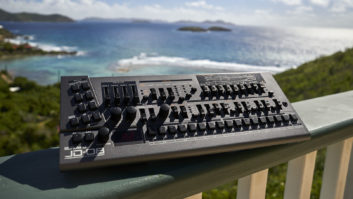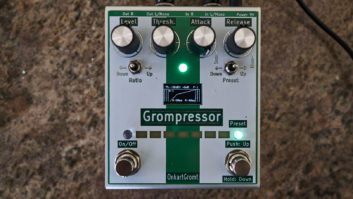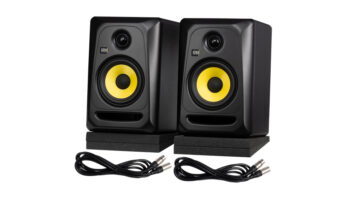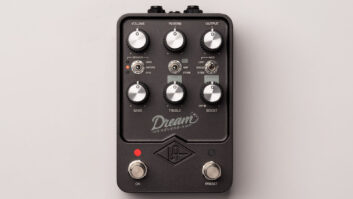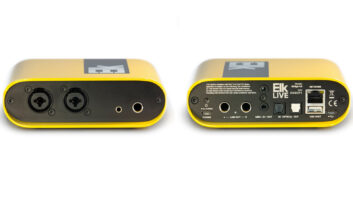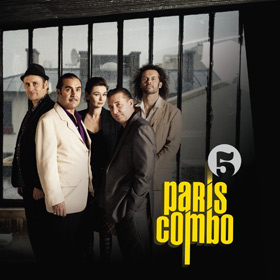
Though Paris Combo has been popular in France for more than 15 years, the group has had limited exposure in the United States so far—not surprising given that they sing in French and their eclectic music is so difficult to categorize. There are certainly elements of traditional French cabaret, Django-esque gypsy jazz/swing, and also a multitude of “world music” influences from the Middle East and other far-flung locales. But their myriad influences are stirred together in a bracing cocktail that sounds distinctively like Paris Combo alone, even as it refers back to music spanning the ’20s to the ’60s.
Part of it is the makeup of the group. Belle du Berry’s vocals are always out front, crystal-clear, and she manages to communicate much through her casual but confident delivery. She’s no torch singer a la Piaf, but neither is she a breathy chanteuse in the mold of Charlotte Gainsbourg, Coralie Clément or Carla Bruni. She has cited as influences both the cabaret singer (and actress) Arletty, but also more contemporary artists, such as The B-52s. Frankly, she is a better singer than the former, and I don’t hear any retro-campiness in her delivery that would make her comparable to B-52s Kate Pierson and Cindy Wilson. (Maybe she just likes that band’s fun, irreverent approach.)
Paris Combo’s fleet-fingered guitarist Potzi navigates the songs’ many stylistic shifts with élan and apparent ease, and Australian David Lewis supplies much in the way of both melody and background shadings, playing trumpet, cornet and piano, overdubbing multiple parts on most songs. His horn work is quite diverse, drawing on everything from ’20s “jungle jazz,” to the cool approach of Chet Baker and Miles Davis (both heroes in France), to smooth ’60s stylings. The rhythm section is a solid but unobtrusive anchor—drummer Francois Jeanin is a founding member (with the aforementioned three), and new bassist Emmanuel Chabbey fits right in on every track. A couple of songs on 5 also included subtle string lines courtesy of a violin-viola-cello trio. The founding four members are co-credited as songwriters on every tune.
In general, the songs on 5 are perhaps a little less exotique than on preceding Paris Combo albums—certainly there is less Middle Eastern influence (though it’s prominent on parts of “Lux”). Coming more to the forefront this time is what I would label a ’60s pop aesthetic, which works nicely on such tunes as “Je Te Vois Partout,” “Lux” and “Médiumisons.” The disc’s producer/engineers— Bénédicte Schmitt and Dominique Blanc-Francard—have worked separately and together with many of the biggest names in French pop, so perhaps some of this approach comes from them. Still, there’s the requisite swinging bebop-inspired number (“Le Magasin de Porcelaine”), exquisite muted trumpet on “Goodbye Pinocchio,” and a couple of songs have that Kurt Weill/cabaret rhythm this band excels at. In other words, there are many different styles to dig.
The press materials note that the songs on 5 are all about the extremes of love. Looking at David Lewis’s English translations of the lyrics on pariscombo.com definitely brought that into focus for me. But even before I did that, I could appreciate the emotional range evident in du Berry’s vocals song to song, and the wonderfully varied instrumental accompaniment that is this group’s trademark. Clearly, you don’t have to be French to love Paris Combo.
Produced, recorded and mixed by Bénédicte Schmitt and Dominique Blanc-Francard at Labomatic Studios (Paris). Strings recorded by David Lewis at Tah-Dah Studios (Paris).
